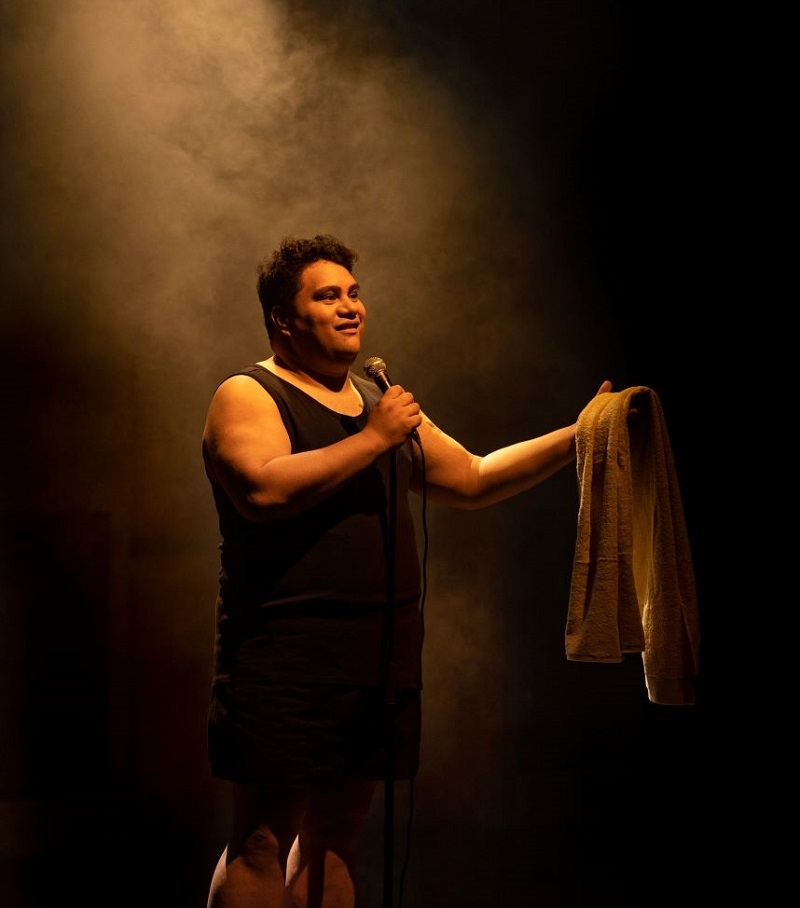Be Like Billy ?
The Court Theatre, Bernard Street, Addington, Christchurch
25/03/2023 - 22/04/2023
Production Details
Created and performed by Rutene Spooner.
Directed by Holly Chappell.
Musical Direction Henare Kaa.
The Court Theatre
In the world premiere of Be Like Billy?, award-winning Māori actor and cabaret performer Rutene Spooner shares his personal journey in the footsteps of “te master, te legend, te funny fala”, Billy T James. Backed by four-piece Tequila Muttonbirds, Be Like Billy? infuses music and laughter to evoke reflection on our national identity.
Ticket Prices
Adult $37 – 42
Senior (65+) $35 – 39
Group (6+) 10% Discount*
Concessions (see website for details) $25
* Applies to Standard Adult, Friends, Child and Senior price tickets
Be Like Billy? runs 25 March – 22 April and can be seen in double bill with Rēwena (discounts apply). Tickets available from courttheatre.org.nz
Show Runs 25 March – 22 April
● Monday – Saturday 8:00pm
● Forum (incl. Cast and Crew Q&A) 3 April
● Matinee 15 April 2:00pm
Bookings: phone 0800 333 100 or visit https://courttheatre.org.nz/whats-on/be-like-billy/
Band
Clayton Hiku Bass
Jack Bubb Keys / Synth
Henare Kaa Drums / percussion
Heather Webb Guitar
Juanita Hepi Māori Advisory Kaiāwhina
Matt McCutcheon Set Design
Nephtalim Antoine Costume Design
Matt Eller Sound Designer
Giles Tanner Lighting Designer / Operator
Rochelle Wright Properties Co-ordinator
Scott Leighton Stage Manager
Theatre , Solo ,
70 mins
Cheeky, cheerful, charming, amusing, musical – and moving
Review by Lindsay Clark 26th Mar 2023
The punctuation says it all for the premiere production of this commissioned piece. The eye quickly conveys the idea of the iconic Billy T James before taking in the implications of a question mark. Thus from the start we are in interesting territory for theatre: the land of exploration.
The audience roars approval as it responds to an unorthodox entry from solo performer Rutene Spooner and onstage, the vigorous Te Kira Muttonbirds. His opening shots that he has to wear his ‘tangi shoes’ and that we are here to engage with a ‘brown fella taking the piss’ seem all to be on cue.
We think we know where this is going. Lots of laughs with an occasional frisson of embarrassment if the gentle scalpel is too close to some bone. There is no shortage of energy. The pace is rattling along nicely, band and performer are as one. It’s time for ‘What happens next?’
The natural comfortable place is first steps, before ‘Billy T’ even came into it. The musicianship from learning 3 guitar chords in time to accompany his kura for singing, to the ‘school’ of the garage party and responses to jazz, to Māori showbands and that famous quartet, all goes the merry way of tuneful entertainment. A good time is being had by all as long as everyone understands the game and Rutene Spooner plays the role of cheeky, cheerful entertainer with great charm and talent to spare.
Enter the question mark, reminiscent of the sad clown behind the painted smile. When the (staged) audience throws offensive comments, or all that posing for promotion undermines the genuine performer, dishing out ‘warm fuzzies’ to be gobbled up by an unthinking public, it is both hurtful and exhausting. Billy T has us laughing with him rather than at him, but being part of the game where comedy is the default perspective may no longer be enough. The most moving part of his performance for me comes when Rutene Spooner positions himself in a wider frame.
Times have changed, theatre making has changed and perhaps we are at last ready for different insights on the stage.
Copyright © in the review belongs to the reviewer







Comments